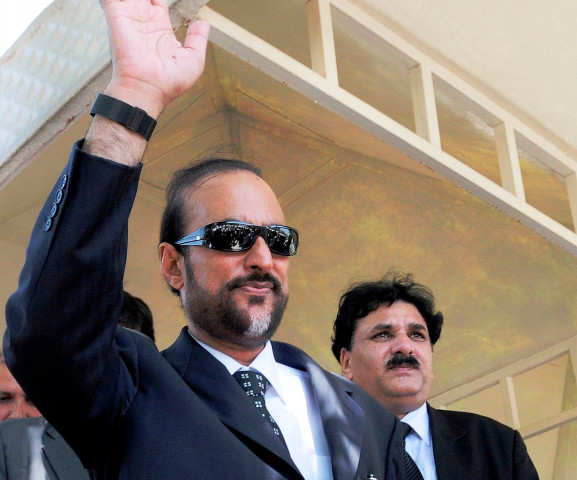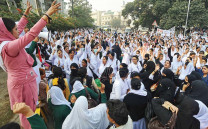Suo motu case: Babar Awan downplays Karachi volatility
AG Sindh says 1,100 policemen of a political group were inducted under his watch.

Inclement weather and advocate general’s revelations clouded Tuesday’s proceedings of the Karachi suo motu case as Senator Babar Awan attempted to downplay Karachi’s volatile situation as an ‘internal disturbance’.
The situation in Karachi cannot be termed a failure of federal or provincial government and at most it can be described as an internal disturbance, said Awan, representing the government before Supreme Court’s five-member bench at the Karachi registry.
Neither the federal executive authority failed nor did the provincial government collapse to the point where it was unable to control the situation in Karachi, Awan said in his arguments.
He attempted to lay the blame for the city’s volatility on Pakistan’s engagement in the war against the Soviets back in the 1980s and the war against terror subsequently.
“The entire security apparatus of Pakistan is engaged in this war,” he said in a weasel argument.
Crime rates spike during civilian governments while they’re curtailed during martial law regimes, said Advocate General (AG) Sindh Abul Fattah Malik, citing data from mid-1980s till 2011.
Malik compared militant groups in Karachi with the Taliban and said these groups have been organised, trained and funded by the government.
He said that as AG Sindh, he was forced to remain silent and allow for induction of 1,100 policemen of a political group.
Instead of bowing to the pressure, you should have resigned, said Justice Amir Hani Muslim.
Seeking more time, Malik said the situation in Karachi cannot be controlled in a week.
You have had 19 years to tackle the issue; how much more time is required, a bench member asked.
When asked about compensation to heirs of victims of violent incidents, Malik said that no such policy exists in Sindh.
The bench, expressing its surprise, referred to its judgment in the Margalla Towers case.
In an impassioned address to the bench, nationalist leader Rasul Bux Palejo asked for banning all militant organisations in the city, since they are “a cancer for the country.”
Further proceedings were adjourned till Wednesday when Awan would conclude his arguments.
Published in The Express Tribune, September 14th, 2011.


















COMMENTS
Comments are moderated and generally will be posted if they are on-topic and not abusive.
For more information, please see our Comments FAQ